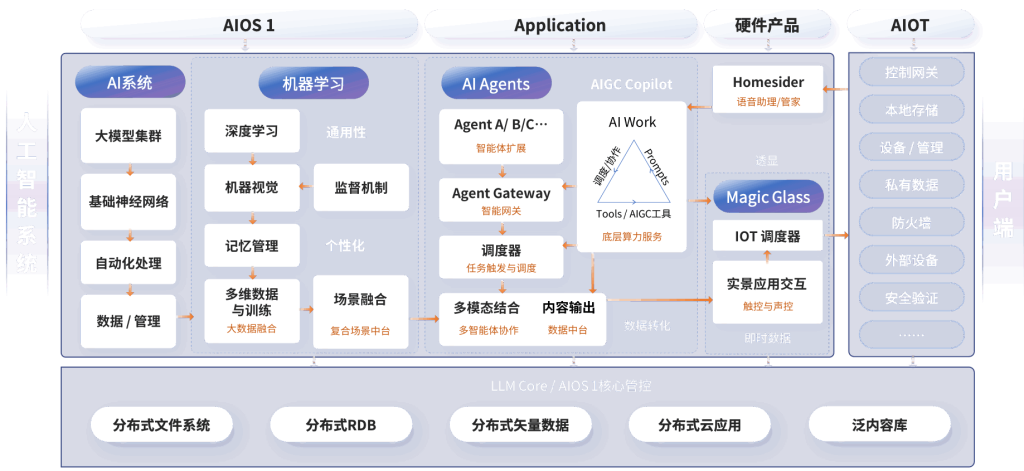Artificial Intelligence (AI) has emerged as a transformative force across various industries, revolutionizing how businesses operate and engage with their customers. From automating routine tasks to providing deep insights into consumer behavior, AI use cases are becoming increasingly prevalent. This article explores the diverse applications of AI, with a particular focus on its role in customer service and automated testing.
.
**AI in Customer Service: Enhancing User Experience**
One of the most significant applications of AI is in customer service. Businesses are leveraging AI technologies to improve customer interactions, streamline support processes, and enhance overall user experience. Chatbots and virtual assistants are at the forefront of this transformation, offering 24/7 support and instant responses to customer inquiries.
.
**Chatbots: The First Line of Support**
Chatbots powered by AI algorithms can handle a wide range of customer queries, from answering frequently asked questions to assisting with order tracking. These bots can analyze customer inputs, understand intent, and provide relevant responses in real-time. According to a report by Gartner, by 2025, 75% of customer service interactions will be powered by AI, highlighting the growing reliance on these technologies.
.
**Personalization Through AI**
AI in customer service also enables businesses to deliver personalized experiences. By analyzing customer data, AI systems can tailor recommendations and responses based on individual preferences and past interactions. For instance, e-commerce platforms use AI algorithms to suggest products to customers based on their browsing history, enhancing the likelihood of conversion and customer satisfaction.
.
**Sentiment Analysis for Better Engagement**
Another innovative use case of AI in customer service is sentiment analysis. By analyzing customer feedback and social media interactions, AI can gauge customer sentiment and identify potential issues before they escalate. This proactive approach allows businesses to address concerns promptly, fostering stronger customer relationships and loyalty.
.
**AI in Automated Testing: Ensuring Quality and Efficiency**
In addition to customer service, AI is making significant strides in the realm of software development, particularly in automated testing. As businesses increasingly rely on software applications, the need for efficient testing processes has become paramount. AI-driven automated testing tools are helping organizations ensure software quality while reducing time and costs.
.
**Accelerating the Testing Process**
Traditional testing methods can be time-consuming and prone to human error. AI-powered testing tools can automate repetitive tasks, such as regression testing, allowing teams to focus on more complex scenarios. According to a study by Capgemini, organizations that implement AI in testing can reduce testing time by up to 70%, enabling faster releases and improved time-to-market.
.
**Predictive Analytics for Test Optimization**
AI can also enhance test optimization through predictive analytics. By analyzing historical test data, AI algorithms can identify patterns and predict potential failures, allowing teams to prioritize testing efforts on the most critical areas. This data-driven approach not only improves the efficiency of testing but also enhances the overall quality of software products.
.
**Continuous Testing in DevOps**
The integration of AI in automated testing aligns seamlessly with the DevOps methodology, which emphasizes continuous integration and continuous delivery (CI/CD). AI-driven testing tools can continuously monitor code changes, automatically run tests, and provide immediate feedback to developers. This real-time testing capability ensures that issues are identified and resolved quickly, facilitating a smoother development process.
.
**Challenges and Considerations**
While the benefits of AI in customer service and automated testing are significant, organizations must also consider potential challenges. Implementing AI solutions requires a robust infrastructure, access to quality data, and skilled personnel to manage and interpret AI outputs. Additionally, businesses must navigate ethical considerations, such as data privacy and bias in AI algorithms.
.
**The Future of AI: Trends and Innovations**
As AI technology continues to evolve, several trends are shaping its future applications across industries.
.
**Natural Language Processing (NLP)**
Advancements in Natural Language Processing (NLP) are enhancing AI’s ability to understand and respond to human language. This technology is critical for improving customer service interactions, enabling chatbots to engage in more natural conversations and understand complex queries.
.
**AI and Machine Learning Integration**
The integration of AI with machine learning is also driving innovation in automated testing. Machine learning algorithms can learn from past testing outcomes, continuously improving their accuracy and efficiency. This adaptive testing approach allows organizations to stay ahead of potential issues and enhance software quality.
.
**AI Ethics and Governance**
As AI becomes more integrated into business processes, the importance of ethical considerations and governance frameworks cannot be overstated. Organizations must establish guidelines to ensure responsible AI usage, addressing concerns related to bias, transparency, and accountability.
.
**Conclusion: Embracing AI for Competitive Advantage**
In conclusion, AI use cases are reshaping industries by enhancing customer service and streamlining automated testing processes. Businesses that embrace AI technologies can improve operational efficiency, deliver personalized experiences, and ensure high-quality software products. As AI continues to evolve, organizations must stay informed about emerging trends and best practices to leverage its full potential. By doing so, they can gain a competitive advantage in an increasingly digital landscape.
.
**Sources:**
1. Gartner. (2021). “Gartner Predicts 75% of Customer Service Interactions Will Be Powered by AI.”
2. Capgemini. (2020). “The AI-Driven Testing Revolution: How AI is Transforming Software Testing.”
3. McKinsey & Company. (2021). “The State of AI in 2021: Trends and Insights.”
.
This comprehensive overview of AI use cases highlights the transformative potential of AI in customer service and automated testing, providing organizations with the insights needed to navigate this rapidly evolving landscape.





















